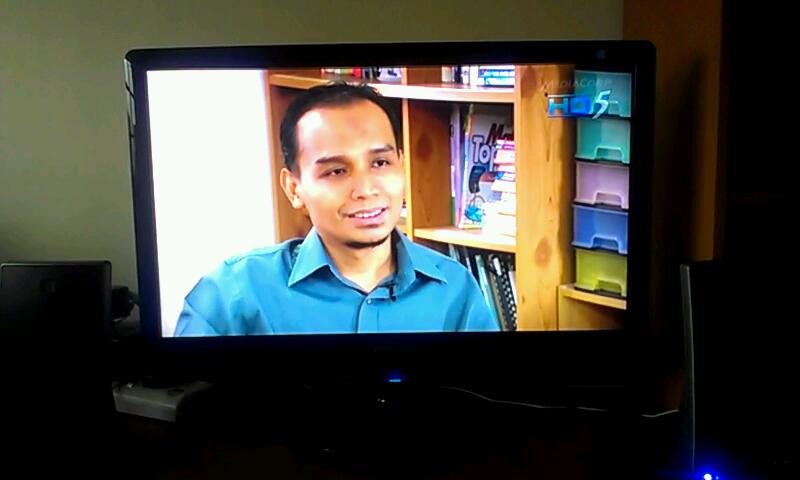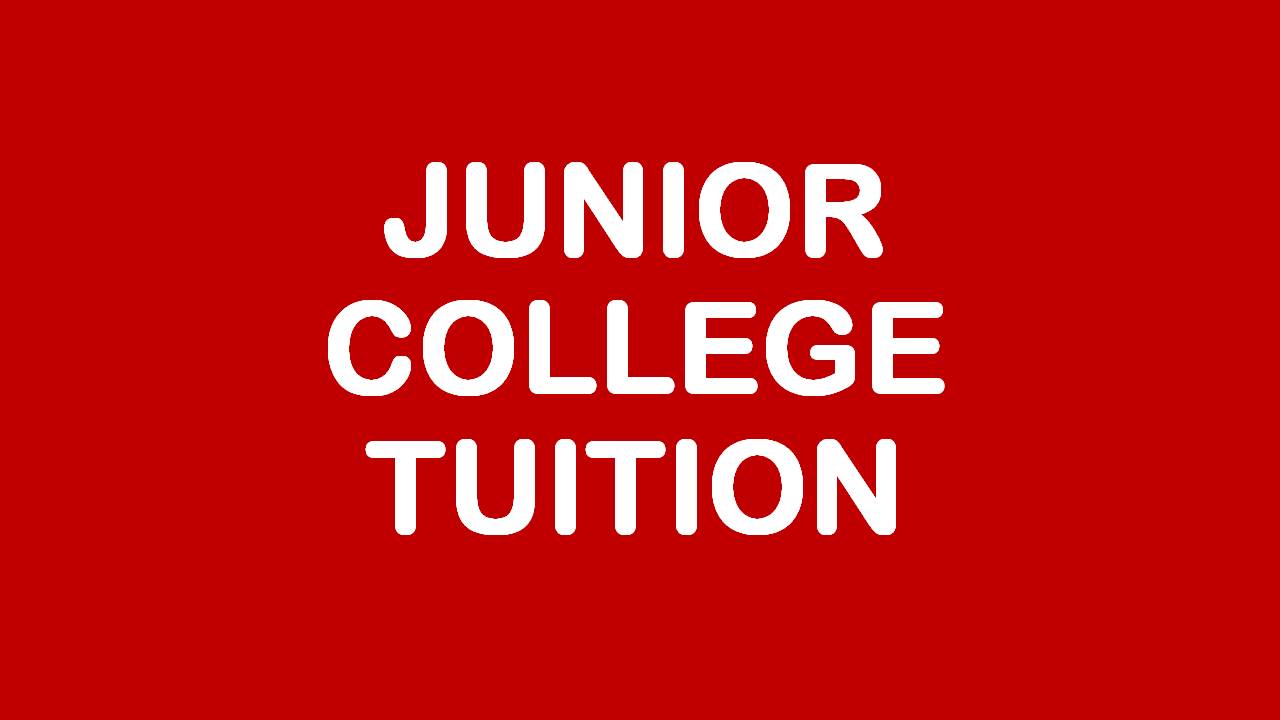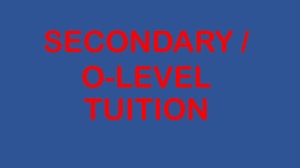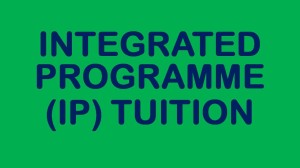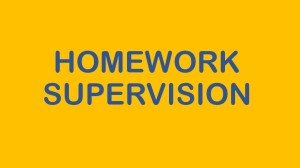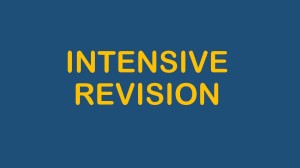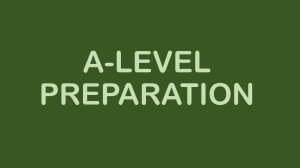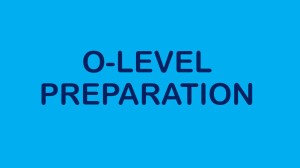I was interviewed by the media yesterday about my views. Since the televised version of it is just one minute, I will write my full answers here plus extra perspectives. : )
Q1. How was it like when you had to register your child for P1?
Although my wife is an alumnus of a popular school, we decided to send our girls to a nearby school instead. We were disappointed that even though we live less than 1 km from the school, we still had to participate in balloting. Although our children did get into the school, it would be quite stressful if they didn’t. To me, children who live less than 1 km from a school should be given a higher priority to enter that school than children whose parents are simply alumni.
Q2. What do you think of the changes introduced?
I think the changes introduced are too minor and vague to make any significant impact on the education system here, if the intention was to reduce stress in the system. If the intention was to have a greater diversity of student backgrounds in a school, the impact will still be minimal. For example, what if there are more than 40 students with no prior connections to a school wanting to go to that school which is near their home? 40 places is not a lot. As for DSA, higher-income parents will be able to groom their children to have some sporting or artistic talent. As for good character or resilience being a consideration for DSA, it is very subjective; students can also be pretentious and parents can force their children to undergo activities that show or document that they have good character or desired personal attributes.
Q3. As a parent, how stressful is PSLE for you?
Because both my wife and I are educators, it is not very stressful for us as we are able to develop our kids academically ourselves. But this may not be the case for other parents, especially those who are not teachers or tutors.
Q4. How do you think the change to PSLE scoring will impact the way children learn?
Not much. Just because I won’t be able to know whether my child gets 235, 265 or 266, it doesn’t mean I will not push them to get 4 A-stars. Parents still want their children to get the best grades.
Q5. As an educator, what are your thoughts on the option to do higher level subjects in Sec 1?
It’s still quite vague what the subjects are that students can do. Apparently, it’s only for Normal stream students to do an Express subject, not for Express stream students to do a higher level subject. It may be good for some able students, but just because you have done well in some previous exam it doesn’t mean you are ready to do a more rigorous subject.
Q6. How will the change to DSA impact your child’s preparation for Secondary School?
Hardly any. Personally, I don’t like a backdoor method of entry to a school. If I want my child to enter a top school, I want her to be intellectually ready to compete with other top students.
Q7. Is it realistic to move towards a “every school is a good school” reality in Singapore?
It will take some time to convince parents that every school is a good school. In the first place, the term “good school” is problematic. What exactly constitutes a good school? I think the government contradicts itself by saying that “every school is a good school”, yet it wants to preserve the notion of “top schools”. So there are good schools and there are top schools. So as a parent, why should I not push my child to get into a top school rather than a good school? What will be more obvious to the public is, all schools are good schools, but some are better than others.
My interview will be aired tomorrow at 9pm in VoicesTODAY. I think it will be repeated on Saturday at 5.30pm, and I was told it would also be available on Youtube.
Mixed feelings during relief teaching
I’m now in the staff room of a school in the north, during a break in relief teaching for the day, to cover the work of a Physics teacher. I still enjoy teaching in schools, seeing students clowning about and teachers cracking jokes now and then, and of course, the free parking.
But it saddens me when, at the end of a lesson, the students ask me if i’m coming back to teach them again, or if I can replace their regular teacher. It’s not that I’m such an outstanding teacher; I just do what I thought all teachers should do in class, such as giving real life examples, doing demonstrations, injecting humour now and then, and finally drawing their attention to what the examiners would always look out for in their answer papers.
It has happened just too many times, this thing about students asking me whether I can be their classroom teacher for the long term, that I’m beginning to wonder how many teachers in service are actually passionate about their jobs and possess the right mixture of attributes that can capture students’ attention and make them think about what they are learning. Sometimes, even my own tuition students ask me to teach in their schools.
I’m happy to know that I have the right teaching techniques and the personality to connect with students. But I can be sad thinking about how many students out there are wishing that they have a different teacher for whatever they are learning right now. I’m sure there is a sizeable number of good teachers out there, but perhaps it’s still not enough for the around 30 000 students in every cohort.
Just because you are highly educated in a certain field, it does not mean that you are able to transfer that knowledge to others. So to aspiring teachers out there, please do not enter teaching because (1) it is a stable job, or (2) it gives you many holidays, or (3) you think it is an easy job, or (4) you want free parking, or (5) a job near your home, or (6) you want cheap food. Of course, nothing wrong with all these perks(I myself enjoyed most of these for 3 years), but you should make sure that you possess the right mixture of knowledge, temperament and communication skills for the job. Teachers are the most powerful people on earth; they have influenced leaders like Obama and even Hitler, and others you have not yet come under.
We Didn’t Start The Fire
Forget the haze. Take a break from your studies and find the following song, and learn a bit of history. : )
WE DIDN’T START THE FIRE (by Billy Joel, 1989)
Harry Truman, Doris Day, Red China, Johnny Ray,
South Pacific, Walter Winchell, Joe DiMaggio
Joe McCarthy, Richard Nixon, Studebaker, Television,
North Korea, South Korea, Marilyn Monroe
Rosenberg, H-Bomb, Sugar Ray, Panmunjom
Brando, The King And I, and The Catcher In The Rye,
Eisenhower, Vaccine, England’s got a new queen,
Marciano, Liberace, Santayana goodbye
We didn’t start the fire
It was always burning
Since the world’s been turning
We didn’t start the fire
No, we didn’t light it
But we tried to fight it
Joseph Stalin, Malenkov, Nasser and Prokofiov,
Rockefeller, Campanella, Communist Bloc
Roy Cohn, Juan Peron, Toscanini, Dacron,
Dien Bien Phu Falls, Rock Around the Clock
Einstein, James Dean, Brooklyn’s got a winning team,
Davy Crockett, Peter Pan, Elvis Presley, Disneyland
Bardot, Budapest, Alabama, Khrushchev,
Princess Grace, Peyton Place, Trouble in the Suez
We didn’t start the fire
It was always burning
Since the world’s been turning
We didn’t start the fire
No, we didn’t light it
But we tried to fight it
Little Rock, Pasternak, Mickey Mantle, Kerouac,
Sputnik, Zhou Enlai, Bridge On The River Kwai
Lebanon, Charles de Gaulle, California baseball,
Starkweather Homicide, Children of Thalidomide
Buddy Holly, Ben Hur, Space Monkey, Mafia,
Hula Hoops, Castro, Edsel is a no-go
U2, Syngman Rhee, payola and Kennedy,
Chubby Checker, Psycho, Belgians in the Congo
We didn’t start the fire
It was always burning
Since the world’s been turning
We didn’t start the fire
No, we didn’t light it
But we tried to fight it
Hemingway, Eichmann, Stranger in a Strange Land,
Dylan, Berlin, Bay of Pigs invasion
Lawrence of Arabia, British Beatle mania,
Ole Miss, John Glenn, Liston beats Patterson
Pope Paul, Malcolm X, British Politician sex,
J.F.K. blown away, what else do I have to say
We didn’t start the fire
It was always burning
Since the world’s been turning
We didn’t start the fire
No, we didn’t light it
But we tried to fight it
Birth control, Ho Chi Minh, Richard Nixon back again,
Moonshot, Woodstock, Watergate, punk rock
Begin, Reagan, Palestine, Terror on the airline,
Ayatollah’s in Iran, Russians in Afghanistan
Wheel of Fortune, Sally Ride, heavy metal suicide,
Foreign debts, homeless Vets, AIDS, Crack, Bernie Goetz
Hypodermics on the shores, China’s under martial law,
Rock and Roller cola wars, I can’t take it anymore
We didn’t start the fire
It was always burning since the world’s been turning.
We didn’t start the fire
But when we are gone
It will still burn on, and on, and on, and on…
We didn’t start the fire
It was always burning
Since the world’s been turning
We didn’t start the fire
No, we didn’t light it
But we tried to fight it
We didn’t start the fire
It was always burning
Since the world’s been turning
We didn’t start the fire
No, we didn’t light it
But we tried to fight it
We didn’t start the fire
It was always burning
Since the world’s been turning
We didn’t start the fire…
http://www.youtube.com/watch?v=6POmPgeLW2U
Btw, do you know what PSI stands for?
Cheers,
Ilyasa
Do not drop a subject if you still have interest in it.
This is the time of the year when your school may ask you to drop certain subjects that you are weak in, using the lame excuse that even if you work hard, you will at most obtain a B4 or a C5. In reality, your school is more concerned about its own academic reputation, not about you. Schools are worried that if weak students continue to sit for certain exams, their national exam results (percentage passes or distinctions) will worsen. Yes, it’s not about you or your future; it’s about the school’s image.
Thus you must be wary when any of your school teachers call you in to give you hints to drop a subject. The teacher will say that if you drop one subject, you will have more time to study for the other subjects. While this may be true, what about the months that you have spent learning that subject? And the extra hours that you create by dropping a subject, will it all go into learning the other subjects? Having less subjects also mean that you will be taking a bigger risk should the unexpected happen to your remaining subjects, as you would be relying on a narrower band of subjects.
Two subjects that schools like to ask students to drop are Physics and Additional Math, the two most conceptually difficult subjects to master, in my opinion. So should you drop any of these subjects if you are asked to?
For Physics, the answer depends on whether you still like learning about Physics. If you still do, then continue doing it and take the exam, even if you have hardly ever passed Physics before. Why? The reason is, Physics has always been a difficult subject for most people. Thus the minimum mark to obtain the A1 grade for Physics may still be in the 75 to 79 range, significantly below that for Math (which is probably around 88 to 91). Hence you still stand a good chance of getting a B3 or above for Physics if you are willing to spend enough time practising Physics questions. This is only possible if you don’t mind studying Physics.
I have a tuition student who is very weak in Physics, and true enough, his teacher has been pestering him to drop Physics. So his mum turned to me for advice. Since he still likes Physics, I told the mum not to give in to the teacher. The boy finally passed Physics for his recent SA1 exam, and is now doing exam papers to get a better grade for his upcoming Prelim exam. The boy is mentally slow, but since he likes Physics, the school should have helped him improve instead. Isn’t it the purpose of schools to develop each student to his maximum potential?
The boy had also been asked to drop A. Math. But like I’ve said elsewhere, NEVER EVER drop A. Math, as knowledge of it is useful for many future courses such as Business, Engineering or Science. Although he still failed in his SA1 A. Math, he has been making significant progress as he still likes doing Math. Where there is a will there is a way. Let children and young people learn what they want to learn, even if it means getting poor exam results for the short term. A school should not be telling students to stop learning this or that, or to stop making effort, or to give up on something good that they have started.
If you need more advice (or even tuition, see below) on Math, A.Math, Physics or Chemistry or Combined Science, do whatsapp me at 97860411.
Ilyasa
An NIE-trained Teacher, Mr Ilyasa has been coaching students in O-Level & IP Chemistry, Physics and Math for more than 12 years. An alumnus of Raffles Institution, Mr Ilyasa holds a a Bachelor of Science degree from the NUS as well as a Master of Education (Curriculum & Teaching) degree from the National Institute of Education. Mr Ilyasa’s thinking and metacognitive approaches to problem solving has helped many students of varying abilities to excel in Math and the Sciences. He has coached students from many different schools and streams, including IP, SAP, and IB.
If you need academic help, kindly click on any of the following programs:
REVISION AND RE-LEARNING (NOV-DEC)
HEAD START (NOV-DEC)
STANDARD WEEKLY TUITION (JAN-OCT)
INDIVIDUAL TUITION
SCIENCE PRACTICAL TRAINING
Integrated Programme (IP) students have an unfair advantage
The pre-2007 A.Math syllabus had topics such as Functions and Permutations and Combinations (P&C). These topics were removed (and moved up to JC level) as part of the MOE’s content reduction exercise, in order to allocate more curriculum time to Project Work (PW), National Education (NE) and Thinking Skills (TS) for all government schools.
However, the IP schools need not follow the O-Level syllabus and I have found out from my IP tutees that Sec 3 students in some IP schools are already learning Functions, P&C as well as Graphical Transformations. Thus some IP students have a 2-year headstart over their non-IP counterparts in certain topics of some subjects.
Apparently, the IP schools are able to incorporate JC topics into their syllabus because they have freed up curriculum time in two ways: (1) by not having to set aside time for O-Level preparations such as prelim and mock exams, and (2) by not teaching O-Level topics that have no consequence for the A-Level exams (such as Geometrical Proof in A. Math). Thus IP schools are in effect taking between 3 to 4 years to prepare their already bright students for the A-Level exams when non-IP students have less than 2 years to prepare for it! Some IP schools even introduce the use of the graphical calculator to their Sec 1 students.
The above is not supposed to happen. It doesn’t make sense to allow brighter students more time to prepare for the same exam (thus, in the final analysis, are IP students really smarter? And imagine how academically bright the non-IP students who obtain straight As for the A-levels are. And what to make of the IP students who don’t get As for the A-levels?)
I don’t think the intention behind the IP concept is to allow IP students more time to prepare for the A-levels. If I’m not mistaken, the time that IP schools ‘save’ in NOT having to prepare for the O-levels is meant to be used for the students to enrich their learning or pursue their passion in certain areas or to acquire soft skills, and not to learn ahead A-Level topics! That is why IP students are not allowed to sit for the O-Level exams, even privately, as it defeats the purpose of having the additional free time meant to develop them more holistically. However, it seems to me there is nothing to prevent an IP school from using SIX YEARS to train it’s students entirely for the A-Levels, by focusing on just the A-level topics and not teaching at all anything that is not tested in the A-levels. Of course this is an extreme example, but there is already concrete evidence that IP schools are teaching JC topics at their secondary levels and omitting secondary level topics that are not tested at the A-levels (yes, I was initially surprised to find out that my IP tutees are not aware of certain concepts tested at the O-levels).
Needless to say, there would be many parents who support giving their children four instead of two years to prepare for our difficult A-level exams. But what about the thousands of students who have to take the O-level route? If ‘brighter’ students need more time to learn, how about the ‘less bright’ ones? And what about the original purpose behind the idea of the Integrated Programme? And when we say every school is a good school, what do we mean? I like what one of my non-IP tutees has said – “Every school is a good school, but some are better than others.”
_______________________________________
TUITION CLASSES:
_______________________________________________________________
EDUCATIONAL SERVICES:
______________________________________________________________
By EX-MOE TEACHERS & EXPERIENCED TUTORS
@ BLK 644, BUKIT BATOK CENTRAL, #01-68. S(650644).
CALL 65694897 OR SMS 98530744 OR 97860411.
Something is wrong if your child cries during or after an exam.
Today, both my P5 and P3 daughters told me that some of their classmates were in tears after their Math SA1 exams.
When children cry during or after an exam, it is not simply because the paper is too difficult. Personally I have encountered many difficult test and exam papers in my life, but I have not cried even once because of them. Nope, I don’t think it was because I was a boy; I can’t even imagine my daughters crying because of exams. If they do, then I know I’ve failed as a parent as far as their psychological development is concerned.
Yes, it’s about expectations, or setting them too high, and warning about consequences should the targets not be achieved. Looking back, my parents hardly ever asked me about my school work, and when I told them I would do badly in a paper, they would just comfort me and at worst joined me in my sadness! No scoldings, no cancellation of rewards, not a single kind of punishment or threat.
Yes, I do expect my daughters to do well in their studies, but I do not tie the outcome to rewards or punishment. I give them rewards because I love them, not necessarily because they deserve those rewards. I punish them for wrongdoings, not for performances in tests or exams.
Maybe those children cried because they have too high an expectation of themselves. Then it is their parents’ duty to help them manage their expectations (if the parents can manage their own expectations of course). Or maybe some children just cry easily at the slightest encounter with a difficulty or setback? Whatever the case, children are children and I wouldn’t hold THEM responsible for anything.
Rgds,
Ilyasa
My P5 daughter topped her class in a recent science test.
She obtained 28 out of 30 marks. Of course immediately I asked her about the missing two marks (as though the 28 are not important, but hey, i’m Singaporean u know).
Rahmah has formal science tuition once a week, taught by Mr Lim at my home centre. But almost everyday, she gets to ask her elder sister, my wife and me about science. She’s not really interested in science, except for rocks and minerals which she buys and collects.
My technique is to teach my children science whenever and wherever I can, as my time with them is not much (when I’m free, they would be in school and when they are ‘free’, I would be giving tuition to other people’s children).
Of course it helps that I’m a physics tutor, with lots of knowledge about chemistry as well. I only get irritated when my children ask me about factual biology questions, such as the parts of a plant cell. For that, I normally ask them to use the internet. This is to develop them to be more resourceful and not to immediately rely on others for answers.
If you want your children to be good in science, ask them to read a lot about science and make them think about what they see around them. For eg, ask them why is it easier to cut chicken with a knife than with a metal ruler. In science, you can’t just say it is because the knife is sharper; the scientific answer has to do with force and surface area, or pressure.
Rgds,
Ilyasa
===============================================================
For our latest timetable, click here => 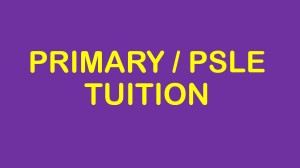
The real cause of stress in our education system …
The cause of stress in our education system is not from within the education system itself. It is not the amount of homework, tests, exams or tuition. It is also not the level of difficulty of our exam papers.
The real cause of stress in our education system, if you have not already realized, is found in the following paragraph (taken from yahoo s’pore): “Overall, the top 10% of Singapore households had incomes of $10,543 per member. The bottom 10% had earnings of $422 per member. Note that the top 10% earns almost 25 times the bottom 10%. The disparity seems mostly related work QUALIFICATIONS.”
That’s why parents here push their children very hard to excel in exams, and not in the children’s area of interest. In many developed countries, it’s ok not to go to college. Here, doing that means choosing to suffer financially in life.
Ilyasa
What makes my day …..
I’m doing relief teaching again today, at a school in Dover Road. I’m now in the library, waiting for the next class to begin at 2.25pm. Just now, after the Physics class ended, students for the next lesson started trickling in. One of them, a tall, lanky boy, looked at me and said,”Hey, weren’t you the teacher that took us for the Log class? That was 2010.”
Looking hard at him, I replied,”Yes, must be. And you look familiar too, except that I now remember you being shorter, but just as thin.” He smiled. “I really enjoyed that class.” “Me too”, I remarked before leaving.
Nothing pleases a teacher more than a meeting an ex-student who has benefitted from his or her teaching. Very often these students have grown up quite a bit and I don’t recognise some of them, but they would stop me in my tracks in a public place, or wave at me from afar and I would take some time to search my memory. Often I dont remember their names already, as so many batches have come and gone. Once a young man stopped talking to his girlfriend, stood up and said hi to me and we chatted for some 5 mins; I hope they are still together.
Sometimes I wonder where the rest have gone to, what they are doing now, and whether they are happy and successful, howsoever they define success. Some I found in facebook, and a few came back to help me tutor. Of the latter, three came in Sec 2, stayed until JC2, underwent NS, and now are undergrads, and I get to meet them every week and ask about their current lives. From all of them I learn about what matters to young people nowadays, their worries, their aspirations and their hopes for the future.
I hope parents spend more time with their children, for some of them tell me things they wouldn’t share with their parents. But I also often tell these youngsters to understand their parents, instead of always asking to be understood.
Parents have their own worries, fears and hopes too. I’ve advised parents before on how to handle their children, and vice versa, and when either party tells me things have become much better, that too, makes my day.
I also feel happy when I have induced a person to do self-reflection, because I do it everyday, in fact almost every moment, even when I’m teaching. That, I think, is the only way to improve. I mean, I don’t see how you can improve if you don’t know what you don’t know, and you also don’t know what you know. Thinking about your own thinking, often called metacognition, is very important in life. I’ll talk about this in another post.
What subject combination to choose for Sec 3 or O-levels …
Based on my experience as a secondary school teacher, if you are now in Sec 2, here are the subjects I think you should choose for Sec 3 which will ultimately become your all-important O-Level subjects:
Other than (1) English, (2) Mother Tongue and (3) Mathematics, your other subjects should be:
(4) Additional Mathematics (A. Math is important for all higher level courses in Business and Science, including Engineering, and it will help you tremendously in JC Math (H1 or H2), as well as in math modules in the Polytechnics or ITE. Even a fail in A. Math is given some recognition for the purpose of application to some poly courses. Many university courses which do not require a pass in A-Level Math still require a pass in O-Level Additional Math. And NEVER, EVER drop A. Math even if your school asks you to; schools only care about their overall percentage passes and image, not about you. A school cannot force you to drop A. Math)
(5) Pure Chemistry or Combined Science with Chemistry (Chemistry is the central science. Without any O-level Chemistry, most likely you will not be allowed to do Chemistry in JC which in turn will bar you from taking any unversity courses related to the life sciences, such as medicine, dentistry, pharmacy etc.)
(6) Whether you take Geography, History or Literature depends on your inclinations. If you are unsure, take History if you intend to go to a JC for it will train you in argumentative or discursive essay writing skills necessary for the General Paper (I took history last time, got an A1 for it and my GP grades were always B3 and above. If you intend to do Law, getting good grades in History and GP helps)
(7) If you want to be in Engineering or Aviation, you must take Physics. If you intend to work in the life or ecological sciences field, you should do Biology.
(8)(added on 21/10/2016) You may also need to consider your overall workload. By taking “triple science”, you may end up taking 8 or 9 subjects when you only need 6 to go to a JC and only 5 to go to a polytechnic. Bear in mind that you may also be more involved in CCA as Sec 3 students will soon become CCA leaders. For example, even though my daughter can do “triple science”, but because she is in the Art Elective Programme and also actively involved in the school band, she has decided to opt for double science instead and I’m happy for her.
Please be very serious in choosing the above subjects because they may actually determine your career in Singapore.
If you need more info on the above, or about choosing JCs or JC subjects, or simply on how to effectively study Math, Physics or Chemistry, do drop by my centre in Bt Batok for a frank, no-obligations discussion. But do msg me (hp no: 9786 0411) first as I may have classes or meetings. Whether you are a parent or a student, if you are serious about education, I look forward to seeing you.
Rgds,
Ilyas
If you need academic help, kindly click on any of the following programs:
REVISION AND RE-LEARNING (NOV-DEC)
HEAD START (NOV-DEC)
STANDARD WEEKLY TUITION (JAN-OCT)
INDIVIDUAL TUITION
SCIENCE PRACTICAL TRAINING
For enquiries on the above, you may contact the tutor directly at 97860411.
SCIENCE PRACTICAL TRAINING:
O-LEVEL PHYSICS PRACTICAL
O-LEVEL CHEMISTRY PRACTICAL
O-LEVEL BIOLOGY PRACTICAL
O-LEVEL SCIENCE (PHYSICS) PRACTICAL
O-LEVEL SCIENCE (CHEMISTRY) PRACTICAL
O-LEVEL SCIENCE (BIOLOGY) PRACTICAL
Click on any related post below:
Beware the critical years in math education in Singapore.
TUITION FOR INTEGRATED PROGRAMME (IP) STUDENTS
TUITION CLASSES:
EDUCATIONAL SERVICES:
By EX-MOE TEACHERS & EXPERIENCED TUTORS
@ BLK 644, BUKIT BATOK CENTRAL, #01-68. S(650644).
CALL 65694897 OR SMS 98530744 OR 97860411.
